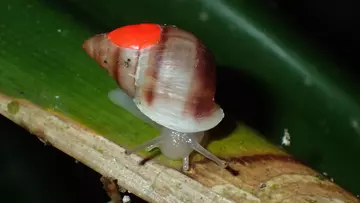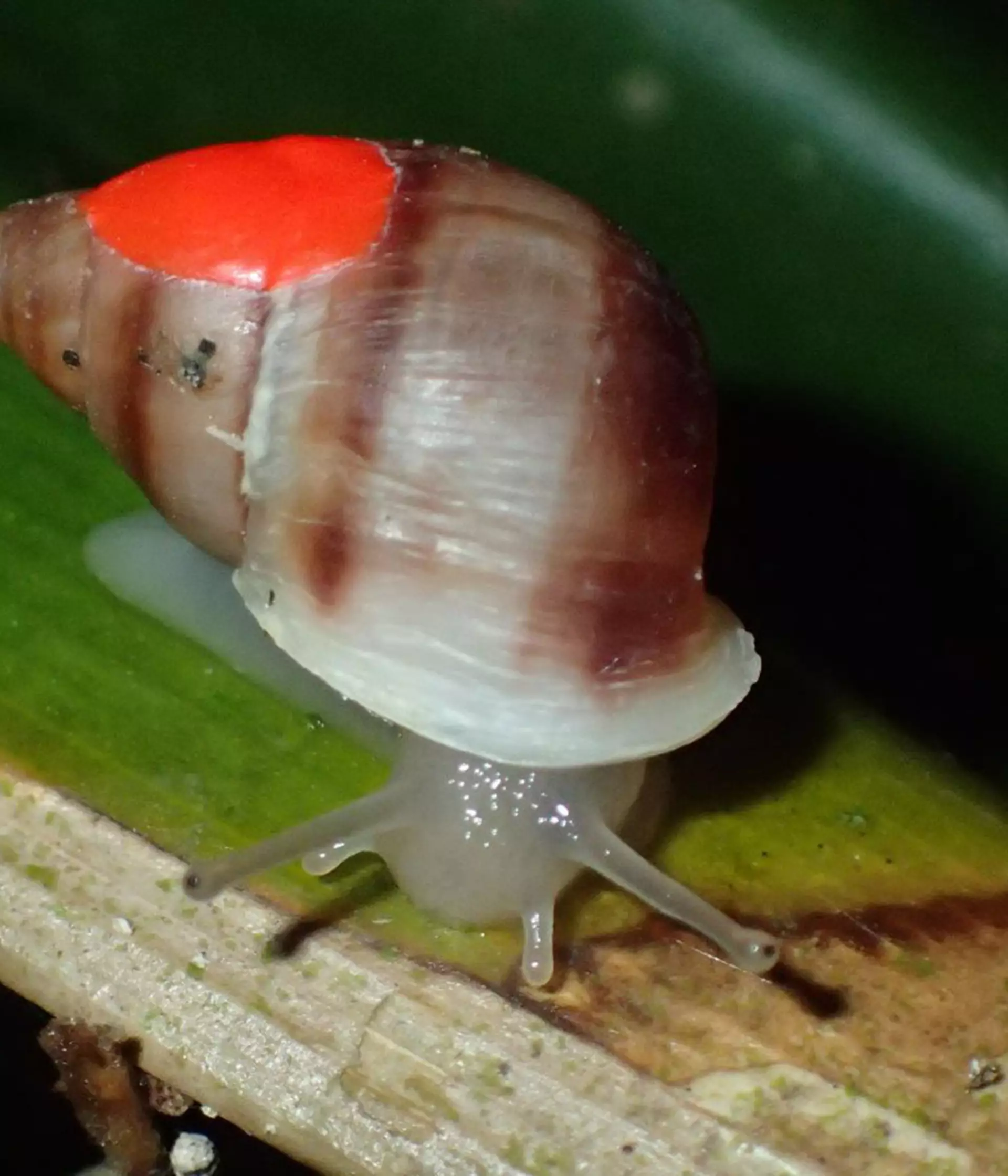
Zookeepers have returned more than 5,000 Extinct-in-the-Wild and Critically Endangered tropical snails.
Thousands of Partula snails reared at London Zoo and Whipsnade Zoo, the Royal Zoological Society of Scotland and St Louis Zoo, were carefully flown over 15,000km to the islands of Moorea and Tahiti earlier this month, for the largest reintroduction in history. They re-introduced back into to their native French Polynesian island homes - almost 30 years after they were wiped out by a human-introduced invasive species.
ZSL’s Curator of Invertebrates, Paul Pearce-Kelly, who coordinates the collaborative Partula conservation programme, said: “Despite their small size these snails are of great cultural, ecological and scientific importance – they're the Darwin’s finches of the snail world, having been researched for more than a century due to their isolated habitat providing the perfect conditions to study evolution.
“This collaborative conservation initiative is, without a doubt, helping to bring these species back from the brink of extinction and shows the conservation power of zoos to reverse biodiversity loss. With nature across the world increasingly under threat, these little snails represent hope for the world’s wildlife.”
This year’s conservation efforts saw eight species and sub-species reintroduced, which are classified as Extinct-in-the-wild, Critically Endangered or Vulnerable. Before making the two -day journey to the islands, the nocturnal snails, which measure 1-2cm in length, were individually marked with a dot of red UV reflective paint, meaning they will glow under UV torchlight to - help conservationists monitor the populations at night when they’re most active.
Partula snails - also known as Polynesian tree snails - eat decaying plant tissue and fungi, so play an important role in maintaining forest health. Returning them back to the wild enables us to start restoring the ecological balance in these islands.
Now on their way back from the brink of extinction thanks to the dedicated work of conservation zoos and the French Polynesian Government’s Direction de l'environnement, the snails were under imminent extinction threat in the 1980s and early 1990s, after the invasive predatory rosy wolf snail (Euglandina rosea) was introduced to rid the islands of a previously introduced alien species, the African giant land snail (Lissachatina fulica). Unfortunately, the predatory rosy wolf snail targeted the endemic snails instead, and across the region – many species were lost or left close to extinction shortly after the predator’s arrival.
The last few surviving individuals of several Partula species were rescued in the early 1990s by London and Edinburgh Zoos, in order to begin the international conservation breeding programme – a collaborations between 15 zoos which care for 15 species and sub-species, the majority of which have an Extinct-in-the-Wild Red List threat status. Combined with others already being studied at universities around the world, it was these individuals that formed the source group to begin re-populating the Islands.
Paul added: “After decades of work caring for these species in conservation zoos - and working with the Direction de l'environnement to prepare the islands for their return - we began releasing Partula snails back into the wild nine years ago.
“Since then, we’ve reintroduced over 21,000 Partula snails to the islands, including 11 Extinct-in-the-wild species and sub-species: this year’s was the largest reintroduction so far, thanks to the incredible work of our international team efforts with collaborators, including mollusc specialist Dr Justin Gerlach of Peterhouse, University of Cambridge.”

Craig Close, senior keeper at The Royal Zoological Society of Scotland’s (RZSS) Edinburgh Zoo, said: “We are thrilled to have been part of helping to restore wild populations of Partula snail back into their native habitat for many years now. Edinburgh Zoo has been involved in the conservation of the species since 1984 and was even given the very last individual of the Partula taeniata sumulans variety in 2010, which was bred back to a safe level of several hundred.
“Our success within the Partula snail programme is owed to those staff who began the work here at Edinburgh Zoo many years ago and to those who now form the wider project partnership, working to ensure this initiative goes from strength to strength. This is a really wonderful conservation success story and further demonstrates the critical role zoos can play in species conservation.”
Christophe Brocherieux (Project Manager, Direction de l'environnement) said “We are proud to be partners in this programme, which highlights the importance of not being discouraged and of persevering to realise successful outcomes for all our conservation projects.”
Saint Louis Zoo Zoological Manager of Invertebrates, Kayla Garcia, said: "I am incredibly proud of the successful collaboration and teamwork both in the field and at home that went into seeing Partula reintroduced back into the wild for the first time since 2019. This was a win for the ongoing conservation efforts of these highly endangered snails.”
Dr Justin Gerlach of Peterhouse, University of Cambridge said: “The releases have shown that Partula snails that have been bred in zoos for generations have adapted really well to being back in the forests of their ancestors."
The Partula snail reintroduction project is made possible due to funding from supporters including the Players of the People’s Postcode Lottery, who have enabled ZSL to continue this vital work and bring species back from the brink of extinction.
ZSL believes nature can recover, and that conservation is most effective when driven by science. We call for science to guide all global decisions on environment and biodiversity and build a healthier future for wildlife, people and the planet.
Climate change and human activity have pushed our precious planet to its limit, causing the devastating loss of so many habitats and species. From lab to field, hands on and behind the scenes, we’re leading the future of conservation, shaping agendas and influencing change to support better life, health and living for people and wildlife.
